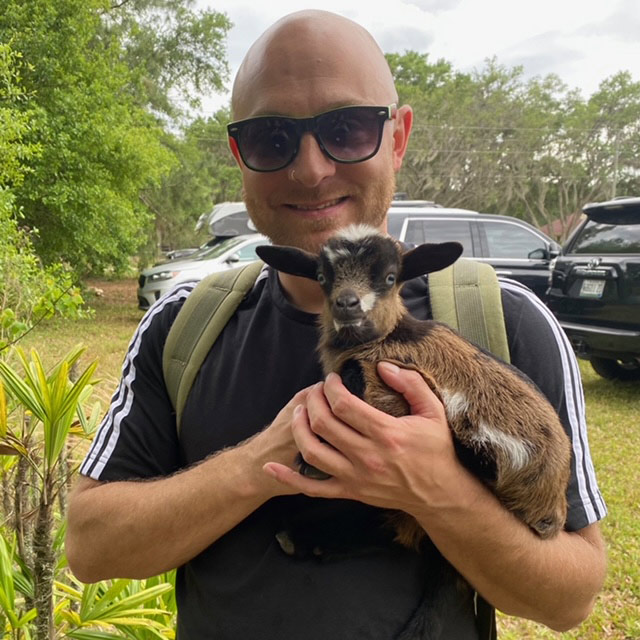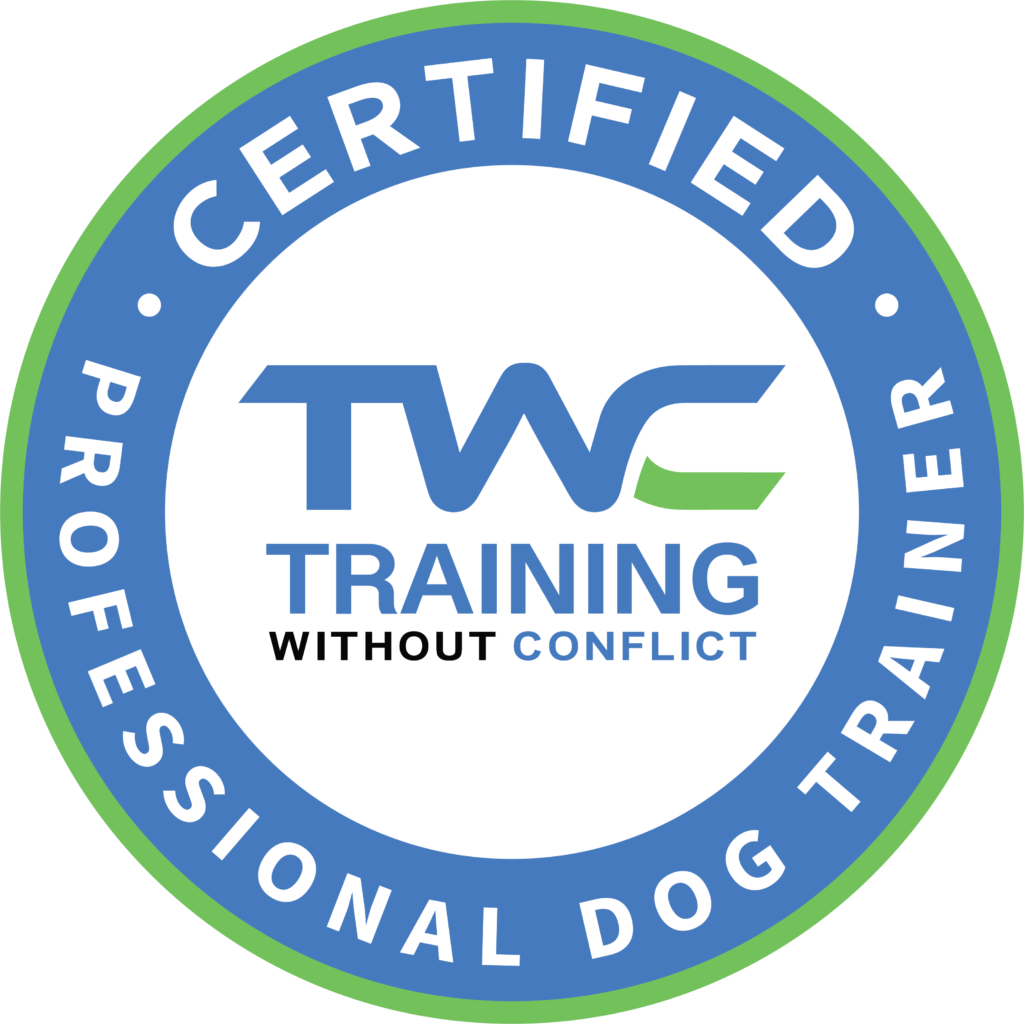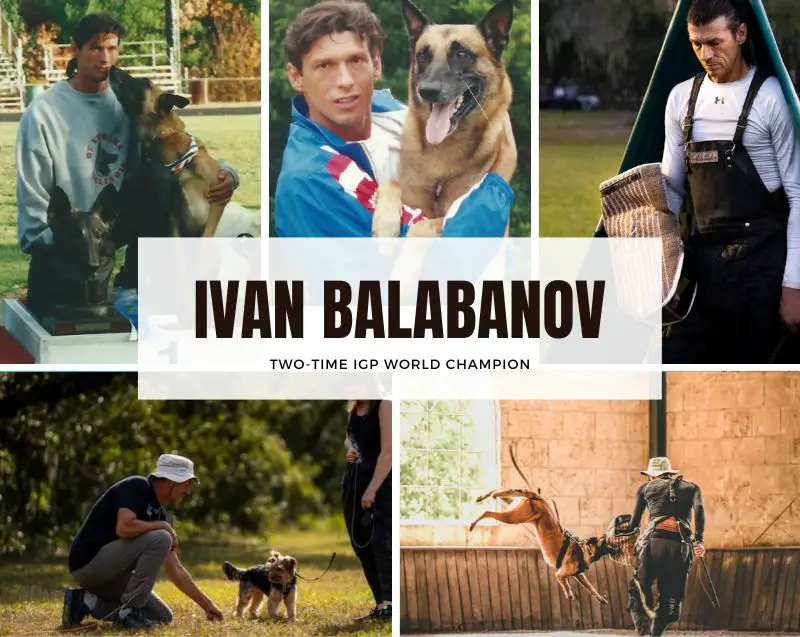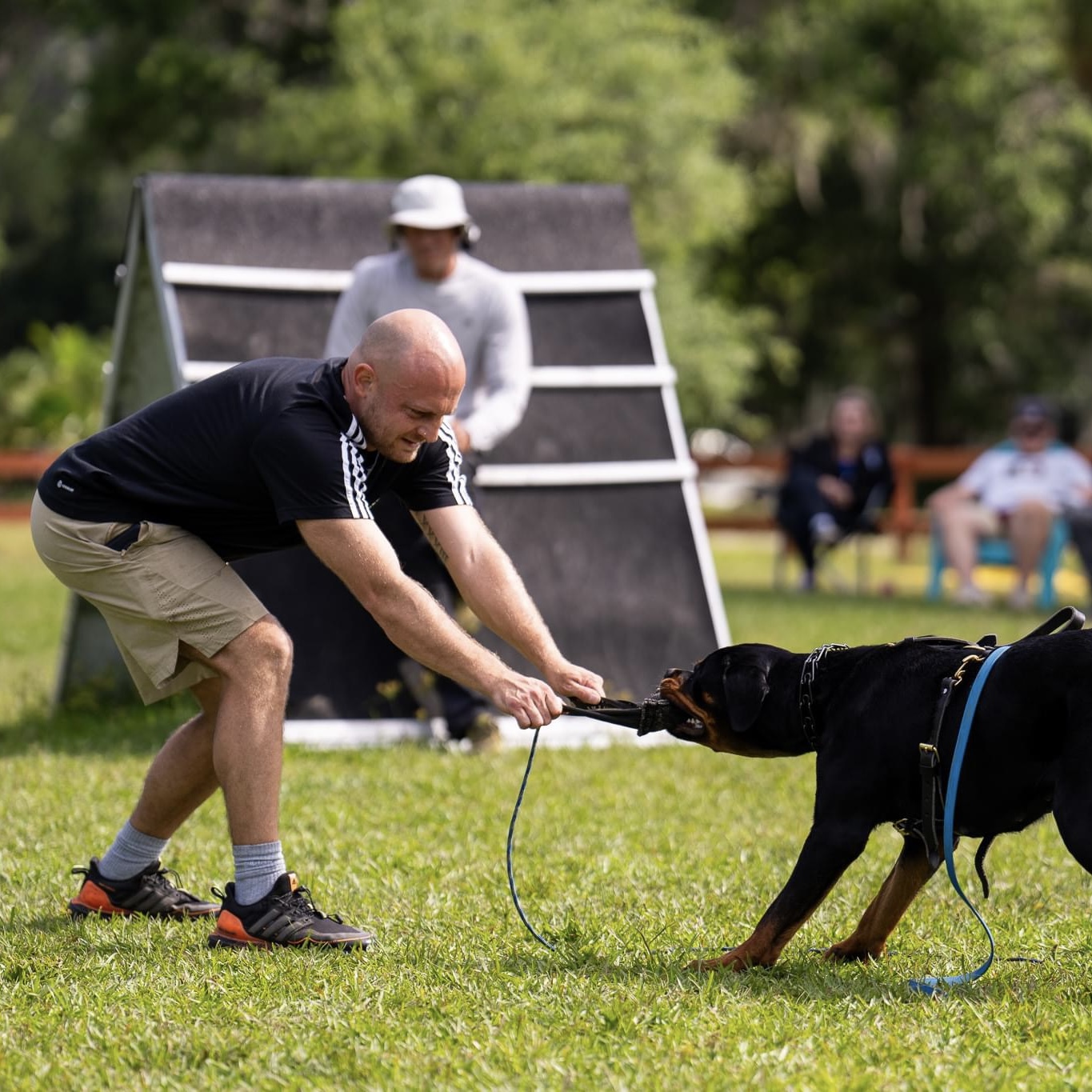


Back in 2010, before I officially started my career with dogs, I had a strong desire to train my own puppy companion. My dog KU$H, a Rottweiler mix, was the one I wanted to mold into a well-behaved canine capable of thriving in any environment. This ignited my relentless pursuit to discover the most effective dog training methods. Fast forward to 2022, I discovered the TWC course and instantly knew I wanted to become certified in it. My goal was to further advance my quest for the most efficient and humane ways to train dogs. I didn’t just rely on positive reinforcement alone, I decided to explore different dog training methods. Although I was familiar with training methods that encompassed all aspects of operant and classical conditioning, I still felt like there was something missing. The balanced trainers I followed, read about, and learned from seemed to echo the same ideas, using similar phrases and catchwords.
During my initial journey of dog training, I primarily taught myself by doing research and reading books written by well-known authors and trainers. I also gained practical experience by working with my own dogs and my clients’ dogs. I achieved great success with many dogs, even those that presented significant challenges. However, I realized that in order to reach my full potential, I needed a mentor. That’s when I came across Ivan and his TWC methodology. His thought-provoking questions about different training methods and the use of punishment in training fascinated me. I admired his podcast interviews with experts, trainers, and others, where he backs up his ideas with research. I have yet to find any trainers who approach dog training with the same scientific rigor as Ivan does. What sets him apart is his refusal to rely on catchy phrases or industry jargon.

The reason why I pursued certification in the TWC methodology was to gain knowledge on the appropriate use of aversive tools and to understand all the concepts of the methodology. I aimed to master the use of an e-collar and to enhance my familiarity with dog sports and protection work. My ultimate goal was to feel self-assured in my training and to learn from the experts.
If I know that something works better than anything else I would travel. If I had to go to Mars, I would go to Mars to learn that skill.
-Ivan Balabanov

Training Without Conflict
Dog training is a fiercely competitive industry. If you want to become an expert, the cheat code is Training Without Conflict. This revolutionary method was created by Ivan Balabanov, a true legend in the field. Ivan’s extensive knowledge and experience speak for themselves: he’s a 2-time IGP World Champion, a 15-time IGP National Champion, and has been training dogs for over 40 years. Not only that, he’s also been breeding Belgian Malinois for over 40 years. Ivan’s expertise doesn’t stop there – he was even a former guide dog trainer at Guide Dogs for the Blind in San Rafael, CA, and the Training Director at the San Francisco ASPCA, the first no-kill animal shelter in the United States.
Training Without Conflict is the only dog training methodology that is based on the proven principles of behavioral psychology. It’s a completely different approach to training dogs, and clients can expect exceptional, long-lasting results that they can easily understand. Ivan’s comprehensive and science-based training system will forever change the way you interact with dogs.
The curriculum of the TWC Certification Program includes 19 Modules covering:
- PSYCHOLOGY: A FOUNDATION FOR MODERN TRAINING
- LEARNING: THE ACQUISITION OF KNOWLEDGE
- DOG TRAINING: AN EVOLVING ART
- THE ENVIRONMENT AND LEARNING DYNAMICS
- TWO MAIN APPROACHES TO TRAINING
- PLAY: AN INNATE BRAIN SYSTEM AS A MOTIVATOR
- CLEAR COMMUNICATION, SIGNALS AND MARKERS
- EXPANDING THE POTENTIAL OF POSITIVE REINFORCEMENT
- THE SCIENCE OF ESCAPE AND AVOIDANCE LEARNING
- THE ADVANTAGES OF USING AVERSIVES IN PUNISHMENT
- NEGATIVE PUNISHMENT DEMYSTIFIED
- ERRORLESS LEARNING VS TRIAL AND ERROR
- DOG WELFARE AND TRAINING CHOICES
- ELECTRIC IMPULSE: PROS, CONS AND PROPER USE
- TRAINING TOOLS AND EQUIPMENT: SMART CHOICES
- DEFINING BEHAVIOR AS PROBLEMATIC
- DOG SPORTS – AN OVERVIEW
- WORKING AND SERVICE DOGS – AN OVERVIEW
- A PRACTICAL LOOK AT THE TWC TRAINING SYSTEM
